-
 Bitcoin
Bitcoin $112100
0.77% -
 Ethereum
Ethereum $4474
3.78% -
 XRP
XRP $2.851
0.46% -
 Tether USDt
Tether USDt $1.000
0.01% -
 BNB
BNB $856.0
0.45% -
 Solana
Solana $209.3
1.04% -
 USDC
USDC $0.9998
-0.02% -
 Dogecoin
Dogecoin $0.2216
3.68% -
 TRON
TRON $0.3420
1.19% -
 Cardano
Cardano $0.8415
1.56% -
 Chainlink
Chainlink $23.79
1.74% -
 Hyperliquid
Hyperliquid $46.03
3.38% -
 Ethena USDe
Ethena USDe $1.001
0.04% -
 Sui
Sui $3.399
2.98% -
 Bitcoin Cash
Bitcoin Cash $599.8
3.03% -
 Stellar
Stellar $0.3628
-0.44% -
 Avalanche
Avalanche $25.24
4.29% -
 Cronos
Cronos $0.2809
9.58% -
 Hedera
Hedera $0.2203
0.68% -
 UNUS SED LEO
UNUS SED LEO $9.526
-0.04% -
 Litecoin
Litecoin $112.7
0.88% -
 Toncoin
Toncoin $3.188
0.41% -
 Shiba Inu
Shiba Inu $0.00001253
0.80% -
 Polkadot
Polkadot $3.891
2.61% -
 Uniswap
Uniswap $9.732
2.10% -
 Bitget Token
Bitget Token $4.971
-2.70% -
 Dai
Dai $0.0000
0.01% -
 World Liberty Financial
World Liberty Financial $0.2148
-8.62% -
 Aave
Aave $327.8
3.77% -
 Monero
Monero $270.0
1.47%
What are "crypto options vaults" (DOVs)?
Crypto Options Vaults (DOVs) generate yield by auto-selling options on deposited assets, offering passive income via premiums, but carry risks like capped upside and smart contract vulnerabilities.
Sep 04, 2025 at 08:18 am
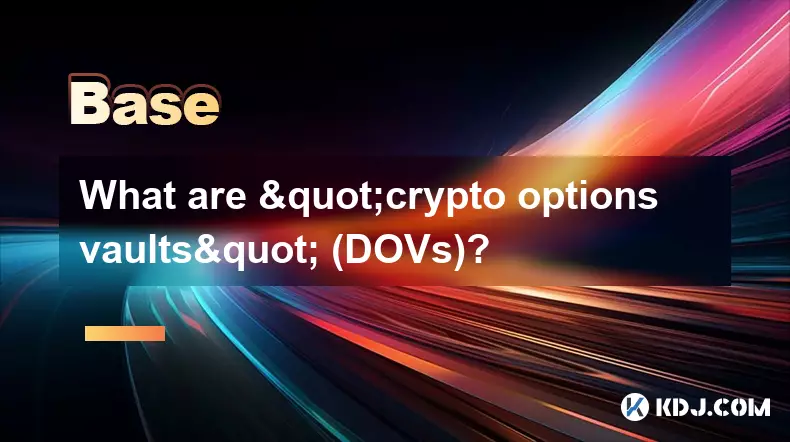
Understanding Crypto Options Vaults (DOVs)
1. Crypto Options Vaults (DOVs) are decentralized financial protocols that allow users to deposit cryptocurrency assets into smart contracts designed to automatically generate yield through options trading strategies. These vaults typically utilize automated market-making mechanisms to sell options such as covered calls or cash-secured puts on the deposited assets. The premiums collected from selling these options are distributed back to depositors as yield, creating a passive income stream.
2. DOVs operate primarily on blockchain networks that support smart contracts, such as Ethereum, Arbitrum, and Solana. They are built using decentralized finance (DeFi) infrastructure, allowing for trustless and transparent operations. Users interact with DOVs through web-based interfaces, where they can deposit tokens, view performance metrics, and withdraw funds according to the vault’s rules.
3. The core mechanism behind DOVs involves writing (selling) options contracts on a regular basis—often weekly or monthly. For example, a vault holding ETH might sell out-of-the-money call options, betting that the price of ETH will not exceed the strike price before expiration. If the option expires worthless, the vault keeps the premium. If the price exceeds the strike, the vault may have to sell the underlying asset at the strike price, limiting upside but still retaining the premium.
4. Risk management is embedded into the design of most DOVs. Strategies are often conservative, focusing on out-of-the-money options to reduce the likelihood of assignment. Some vaults dynamically adjust strike prices and option types based on market volatility and asset price movements, using oracles to fetch real-time data.
5. DOVs differ from traditional lending or liquidity provision vaults in that their yield is derived from options premiums rather than interest or trading fees. This makes them particularly attractive in sideways or moderately bullish markets where options decay (theta) works in the seller’s favor.
Key Features of DOVs
1. Automated Strategy Execution: DOVs eliminate the need for users to manually trade options. The smart contract automatically deploys the chosen strategy at predefined intervals, reducing complexity and execution risk.
2. Transparent Performance Metrics: Most DOVs provide real-time dashboards showing annual percentage yields (APY), total value locked (TVL), option strike prices, and historical performance. This transparency helps users assess risk and return profiles before depositing funds.
3. Permissionless access allows anyone with a crypto wallet to participate. There are no credit checks or KYC procedures, aligning with the ethos of decentralization. Users maintain control of their keys and can withdraw funds during designated periods, depending on the vault’s structure.
4. Integration with broader DeFi ecosystems enables DOVs to offer additional utility. For instance, some vaults issue receipt tokens (like yTokens or oTokens) that can be used as collateral in lending protocols or farmed in yield farms, compounding returns across multiple layers.
5. Governance models vary, but many DOVs are managed by decentralized autonomous organizations (DAOs). Token holders can vote on parameter changes such as strategy selection, fee structures, and asset additions, ensuring community-driven evolution.
Risks and Considerations
1. Impermanent Loss in Options Context: While not identical to AMM-based impermanent loss, DOV participants face opportunity cost if the underlying asset surges past the strike price. The capped upside means depositors may miss out on significant price appreciation.
2. Smart contract risk remains a critical concern. Bugs or exploits in the code could lead to loss of funds. Many DOVs undergo third-party audits, but audits do not guarantee security, especially as codebases evolve through upgrades.
3. Market volatility impacts DOV performance. During high volatility, options premiums increase, boosting yields. However, the probability of the underlying asset hitting the strike price also rises, increasing the chance of assignment and asset sale at potentially suboptimal prices.
4. Liquidity constraints may affect withdrawal timing. Some DOVs operate on a schedule where funds are locked for the duration of an options cycle (e.g., seven days). Early withdrawals are often not permitted, limiting flexibility.
5. Regulatory uncertainty looms over DOVs, as options trading is a regulated activity in many jurisdictions. While DOVs are decentralized, future legal actions could impact their accessibility or functionality in certain regions.
Frequently Asked Questions
How do DOVs generate yield?DOVs generate yield by selling options contracts on the assets deposited by users. The premiums received from these sales are distributed to depositors as returns. The process repeats in cycles, typically weekly or monthly.
Are DOVs safe for beginners?DOVs simplify options trading but still carry risks such as smart contract vulnerabilities and market exposure. Beginners should start with small amounts and thoroughly research the vault’s strategy and audit status before participating.
Can I lose money in a DOV?Yes. If the price of the underlying asset rises significantly above the call option’s strike price, the vault may sell the asset at a lower price, resulting in missed gains. Additionally, smart contract failures or market downturns can lead to capital loss.
What happens when an option is exercised in a DOV?When an option is exercised, the vault must fulfill the contract terms—selling the underlying asset at the agreed strike price. This reduces the vault’s holdings of that asset, and the proceeds (plus the premium) are accounted for in the next distribution cycle.
Disclaimer:info@kdj.com
The information provided is not trading advice. kdj.com does not assume any responsibility for any investments made based on the information provided in this article. Cryptocurrencies are highly volatile and it is highly recommended that you invest with caution after thorough research!
If you believe that the content used on this website infringes your copyright, please contact us immediately (info@kdj.com) and we will delete it promptly.
- Shiba Inu, Metaverse, Meme Coin: Riding the Waves of Hype and Utility
- 2025-09-04 16:25:15
- Tokenized RWAs, DeFi, and Payments: A New Era in Finance
- 2025-09-04 14:25:14
- XRP Whale Watching: How PEPE and TRUMP Coins Play the Altcoin Game
- 2025-09-04 15:10:12
- BlockDAG, Crypto Rankings, and the Hybrid Model Hype: What's the Deal?
- 2025-09-04 15:25:16
- XRP, Regulators, and a Surge of Optimism: What's Next?
- 2025-09-04 15:25:16
- Bitcoin, Treasury Yields, and Gold: A Wild Ride for Your Portfolio
- 2025-09-04 15:45:25
Related knowledge
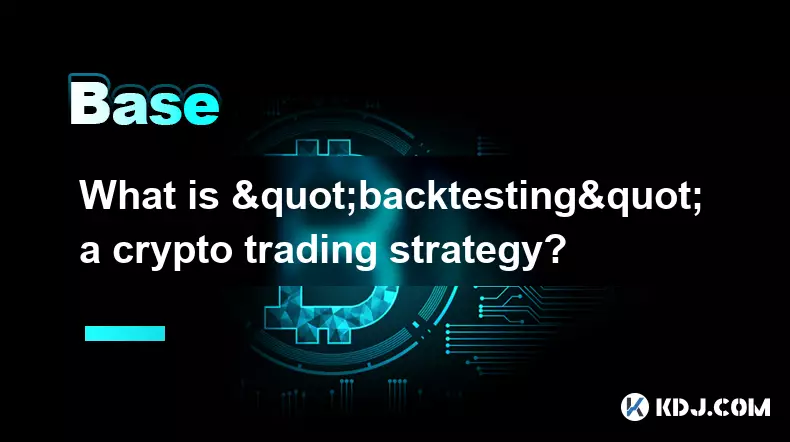
What is "backtesting" a crypto trading strategy?
Sep 03,2025 at 10:55am
Understanding Backtesting in Crypto TradingBacktesting is the process of evaluating a trading strategy by applying it to historical market data. Trade...
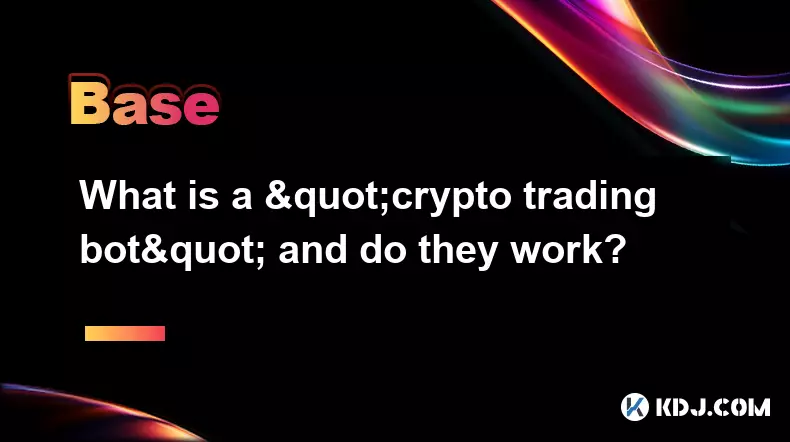
What is a "crypto trading bot" and do they work?
Sep 02,2025 at 04:19pm
Understanding Crypto Trading Bots1. A crypto trading bot is a software application designed to automate the process of buying and selling cryptocurren...
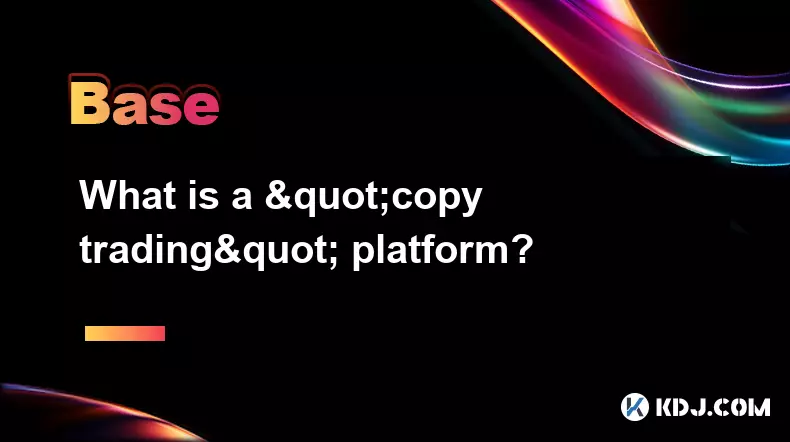
What is a "copy trading" platform?
Sep 02,2025 at 07:00pm
Understanding Copy Trading in the Cryptocurrency Space1. A copy trading platform allows users to automatically replicate the trades of experienced inv...
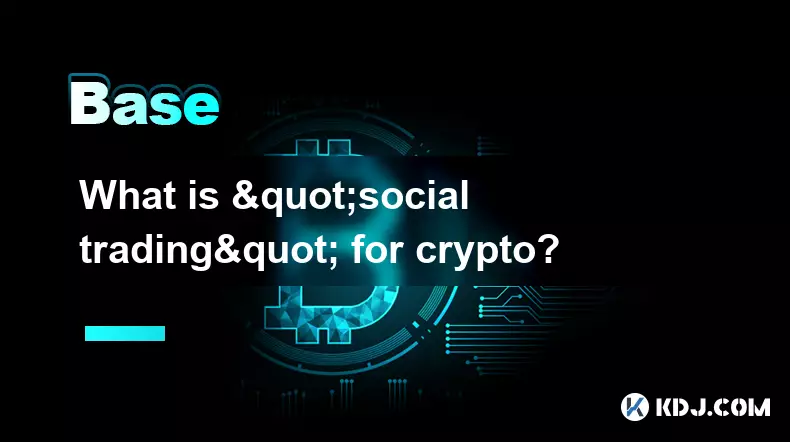
What is "social trading" for crypto?
Sep 03,2025 at 09:00pm
Understanding Social Trading in the Cryptocurrency Space1. Social trading refers to a method where investors observe, follow, and automatically replic...
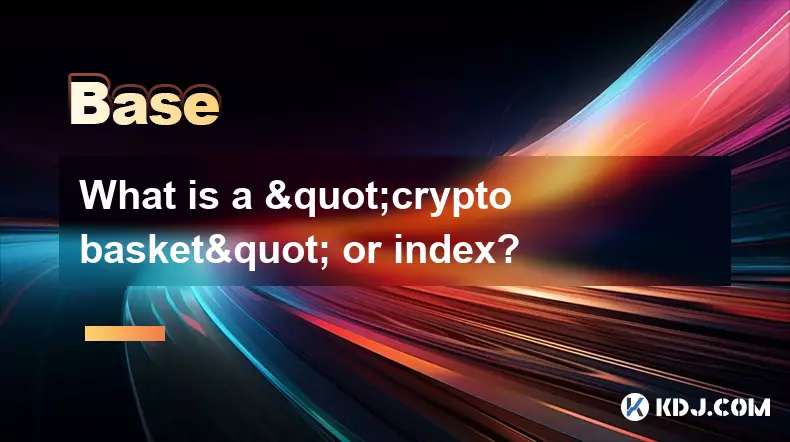
What is a "crypto basket" or index?
Sep 03,2025 at 07:01am
Understanding Crypto Baskets and Their Role in Digital Asset Investment1. A crypto basket refers to a curated collection of multiple cryptocurrencies ...
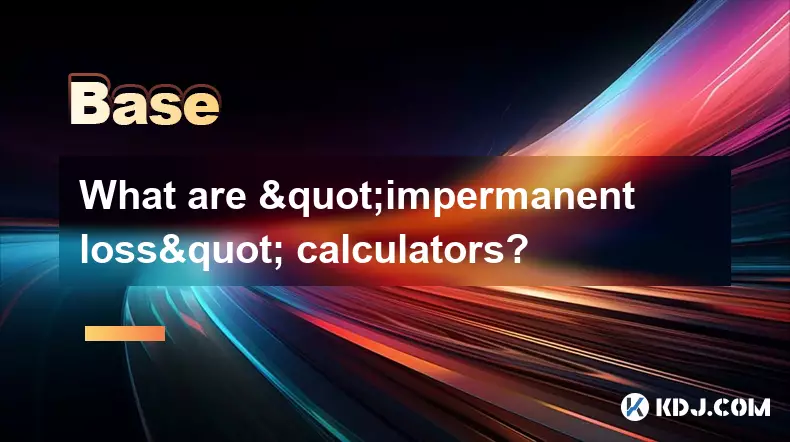
What are "impermanent loss" calculators?
Sep 03,2025 at 12:00pm
Understanding Impermanent Loss in Decentralized Finance1. Impermanent loss is a phenomenon that affects liquidity providers in decentralized exchanges...

What is "backtesting" a crypto trading strategy?
Sep 03,2025 at 10:55am
Understanding Backtesting in Crypto TradingBacktesting is the process of evaluating a trading strategy by applying it to historical market data. Trade...

What is a "crypto trading bot" and do they work?
Sep 02,2025 at 04:19pm
Understanding Crypto Trading Bots1. A crypto trading bot is a software application designed to automate the process of buying and selling cryptocurren...

What is a "copy trading" platform?
Sep 02,2025 at 07:00pm
Understanding Copy Trading in the Cryptocurrency Space1. A copy trading platform allows users to automatically replicate the trades of experienced inv...

What is "social trading" for crypto?
Sep 03,2025 at 09:00pm
Understanding Social Trading in the Cryptocurrency Space1. Social trading refers to a method where investors observe, follow, and automatically replic...

What is a "crypto basket" or index?
Sep 03,2025 at 07:01am
Understanding Crypto Baskets and Their Role in Digital Asset Investment1. A crypto basket refers to a curated collection of multiple cryptocurrencies ...

What are "impermanent loss" calculators?
Sep 03,2025 at 12:00pm
Understanding Impermanent Loss in Decentralized Finance1. Impermanent loss is a phenomenon that affects liquidity providers in decentralized exchanges...
See all articles

























































































